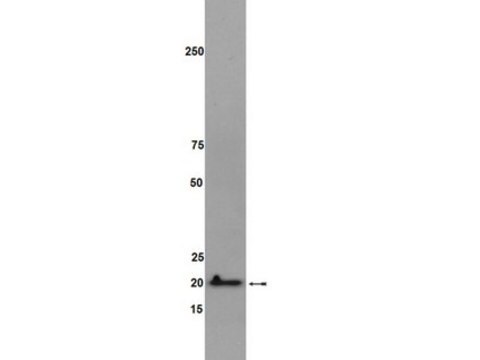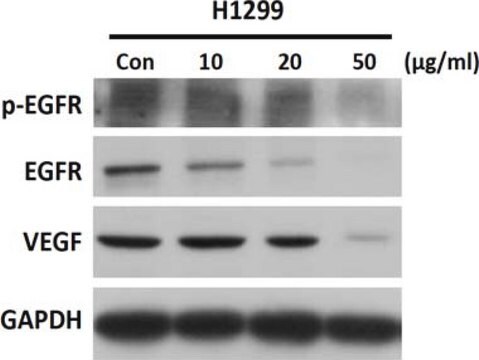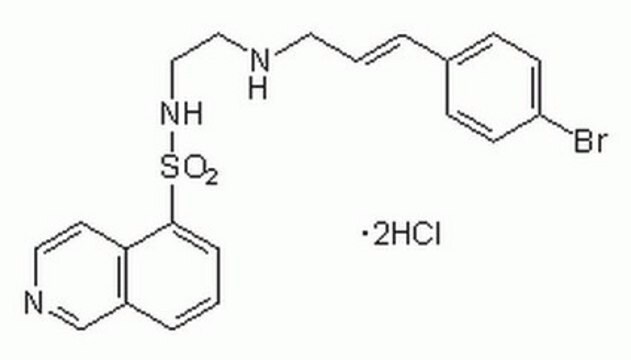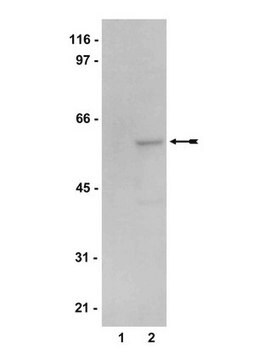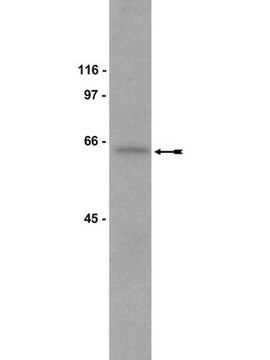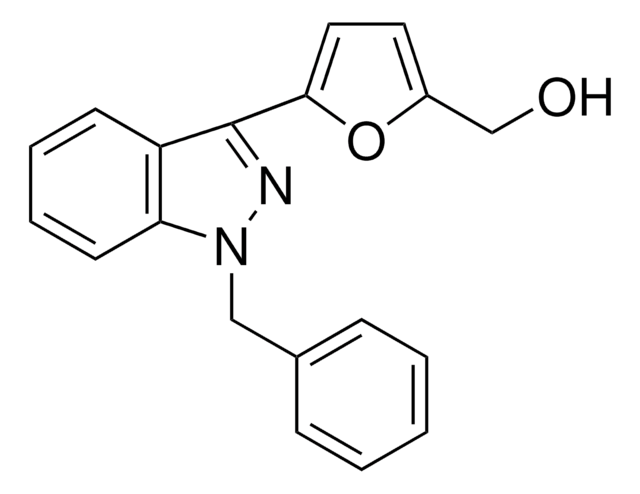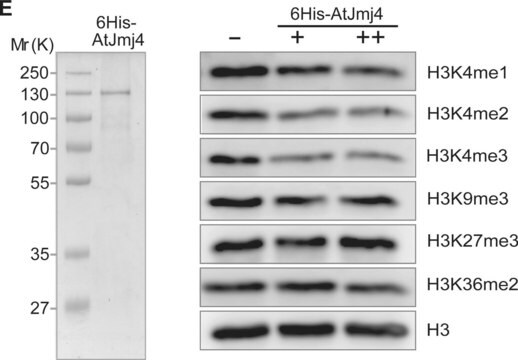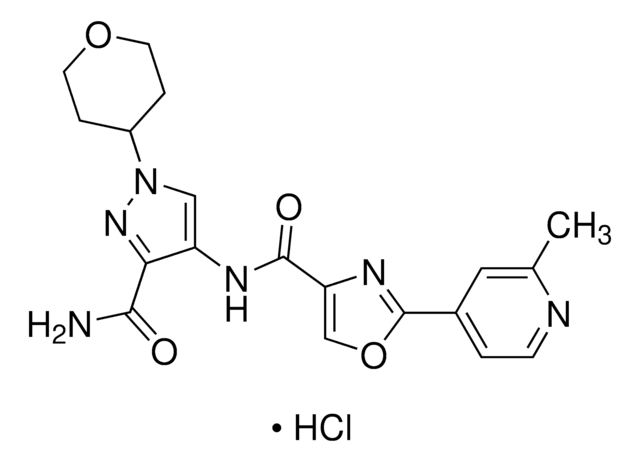05-723
Anti-RhoE/Rnd3 Antibody, clone 4
ascites fluid, clone 4, Upstate®
Synonyme(s) :
MemB protein, Rho family GTPase 3, ras homolog gene family, member E, small GTP binding protein Rho8
About This Item
Produits recommandés
Source biologique
mouse
Niveau de qualité
Forme d'anticorps
ascites fluid
Type de produit anticorps
primary antibodies
Clone
4, monoclonal
Espèces réactives
mouse, human
Fabricant/nom de marque
Upstate®
Technique(s)
immunocytochemistry: suitable
western blot: suitable
Isotype
IgG
Numéro d'accès NCBI
Numéro d'accès UniProt
Conditions d'expédition
dry ice
Modification post-traductionnelle de la cible
unmodified
Informations sur le gène
human ... RND3(390)
Description générale
Spécificité
Immunogène
Application
A 1:50 dilution of this antibody has been reported by an independent laboratory to show positive immunostaining for RhoE/Rnd3 in 3T3/A31 cells fixed with paraformaldehyde and permeabilized by Triton X-100 (Riento, K., 2003).
Signaling
Cytoskeletal Signaling
Qualité
Western Blot Analysis:
A 1:500-1:2000 dilution of this lot detected RhoE/Rnd3 in RIPA lysates from 3T3/A31 cells.
Description de la cible
Forme physique
Stockage et stabilité
Remarque sur l'analyse
Positive Antigen Control: Catalog #12-305, 3T3/A31 lysate. Add 2.5 μL of 2-mercapto-ethanol/100 μL of lysate and boil for 5 minutes to reduce the preparation. Load 20 μg of reduced lysate per lane for minigels.
Autres remarques
Informations légales
Clause de non-responsabilité
Vous ne trouvez pas le bon produit ?
Essayez notre Outil de sélection de produits.
Code de la classe de stockage
10 - Combustible liquids
Classe de danger pour l'eau (WGK)
WGK 1
Certificats d'analyse (COA)
Recherchez un Certificats d'analyse (COA) en saisissant le numéro de lot du produit. Les numéros de lot figurent sur l'étiquette du produit après les mots "Lot" ou "Batch".
Déjà en possession de ce produit ?
Retrouvez la documentation relative aux produits que vous avez récemment achetés dans la Bibliothèque de documents.
Notre équipe de scientifiques dispose d'une expérience dans tous les secteurs de la recherche, notamment en sciences de la vie, science des matériaux, synthèse chimique, chromatographie, analyse et dans de nombreux autres domaines..
Contacter notre Service technique